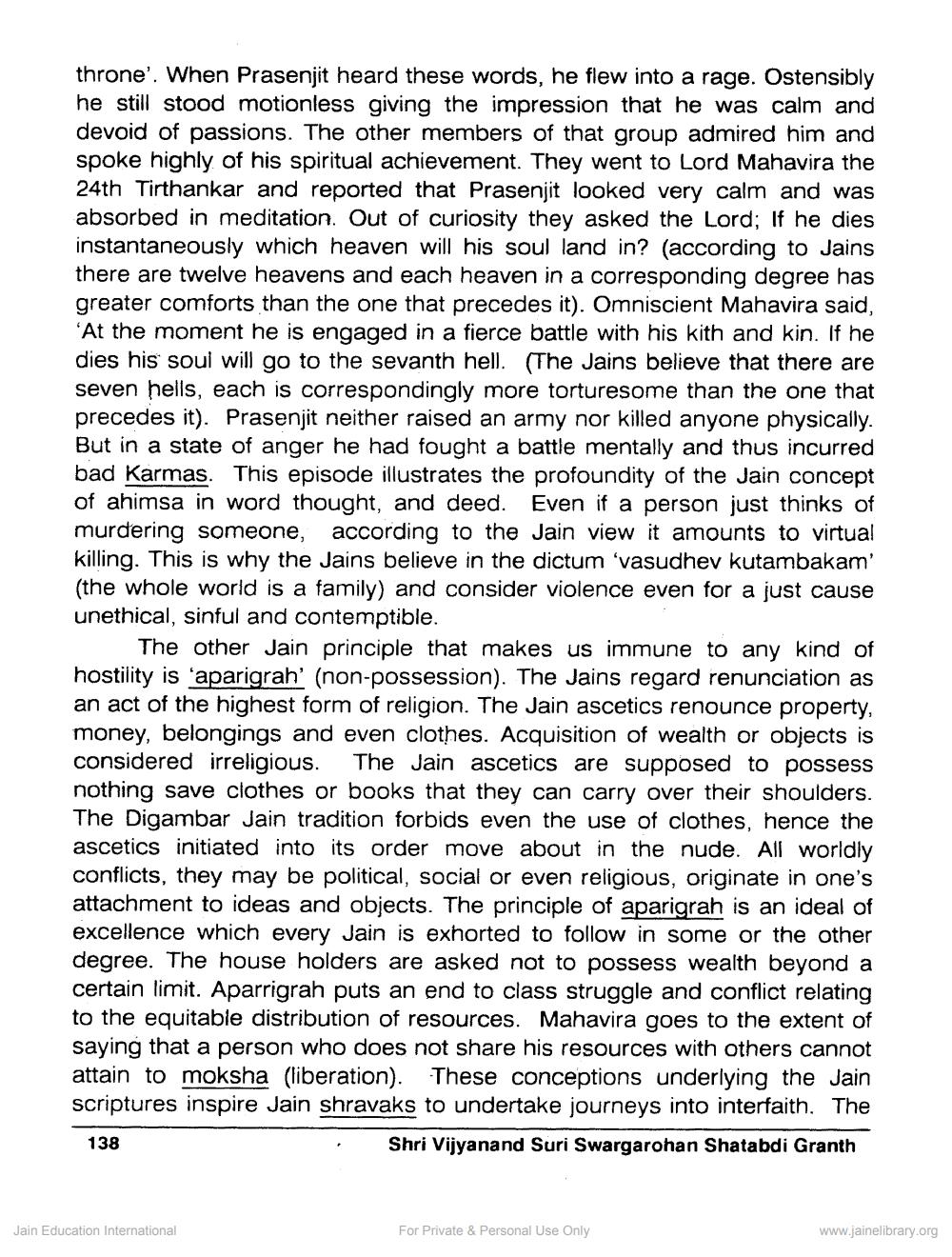Book Title: Jain Religious Traditon Author(s): S L Gandhi Publisher: Z_Vijyanandsuri_Swargarohan_Shatabdi_Granth_012023.pdf View full book textPage 6
________________ throne'. When Prasenjit heard these words, he flew into a rage. Ostensibly he still stood motionless giving the impression that he was calm and devoid of passions. The other members of that group admired him and spoke highly of his spiritual achievement. They went to Lord Mahavira the 24th Tirthankar and reported that Prasenjit looked very calm and was absorbed in meditation. Out of curiosity they asked the Lord; If he dies instantaneously which heaven will his soul land in? (according to Jains there are twelve heavens and each heaven in a corresponding degree has greater comforts than the one that precedes it). Omniscient Mahavira said, 'At the moment he is engaged in a fierce battle with his kith and kin. If he dies his soul will go to the sevanth hell. (The Jains believe that there are seven hells, each is correspondingly more torturesome than the one that precedes it). Prasenjit neither raised an army nor killed anyone physically. But in a state of anger he had fought a battle mentally and thus incurred bad Karmas. This episode illustrates the profoundity of the Jain concept of ahimsa in word thought, and deed. Even if a person just thinks of murdering someone, according to the Jain view it amounts to virtual killing. This is why the Jains believe in the dictum 'vasudhev kutambakam' (the whole world is a family) and consider violence even for a just cause unethical, sinful and contemptible. The other Jain principle that makes us immune to any kind of hostility is 'aparigrah' (non-possession). The Jains regard renunciation as an act of the highest form of religion. The Jain ascetics renounce property money, belongings and even clothes. Acquisition of wealth or objects is considered irreligious. The Jain ascetics are supposed to possess nothing save clothes or books that they can carry over their shoulders. The Digambar Jain tradition forbids even the use of clothes, hence the ascetics initiated into its order move about in the nude. All worldly conflicts, they may be political, social or even religious, originate in one's attachment to ideas and objects. The principle of aparigrah is an ideal of excellence which every Jain is exhorted to follow in some or the other degree. The house holders are asked not to possess wealth beyond a certain limit. Aparrigrah puts an end to class struggle and conflict relating to the equitable distribution of resources. Mahavira goes to the extent of saying that a person who does not share his resources with others cannot attain to moksha (liberation). These conceptions underlying the Jain scriptures inspire Jain shravaks to undertake journeys into interfaith. The 138 Shri Vijyanand Suri Swargarohan Shatabdi Granth Jain Education International For Private & Personal Use Only www.jainelibrary.orgPage Navigation
1 ... 4 5 6 7 8
